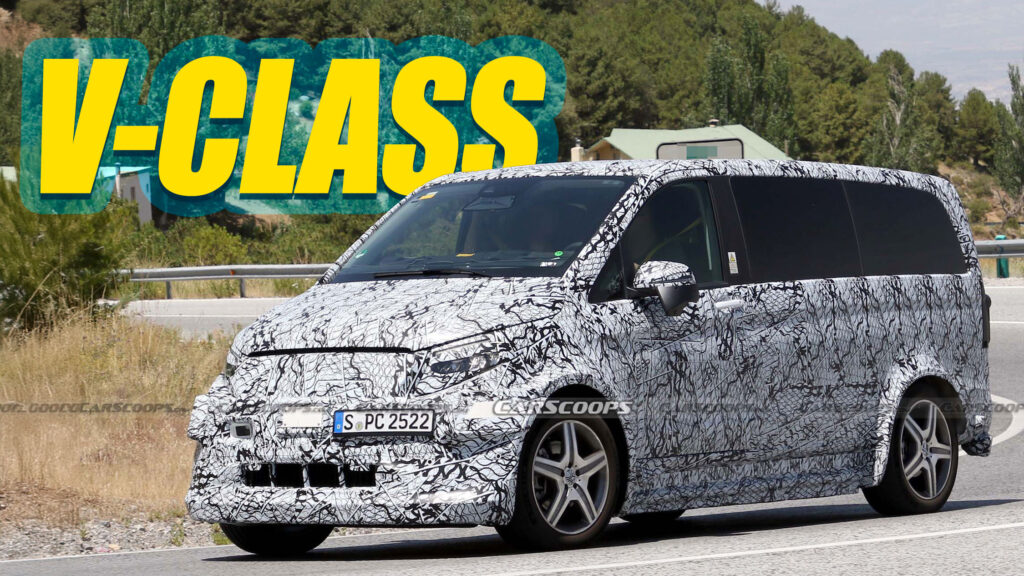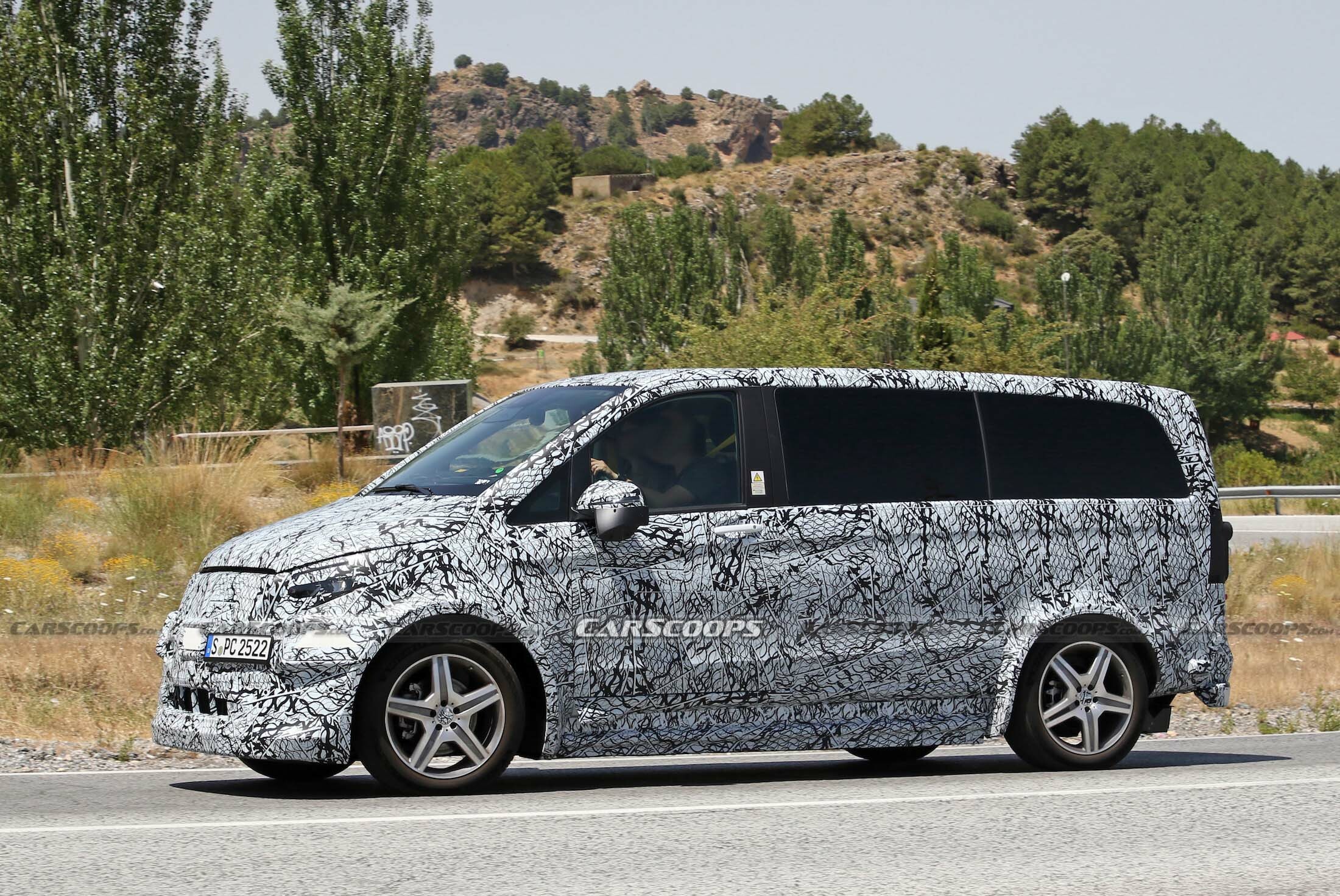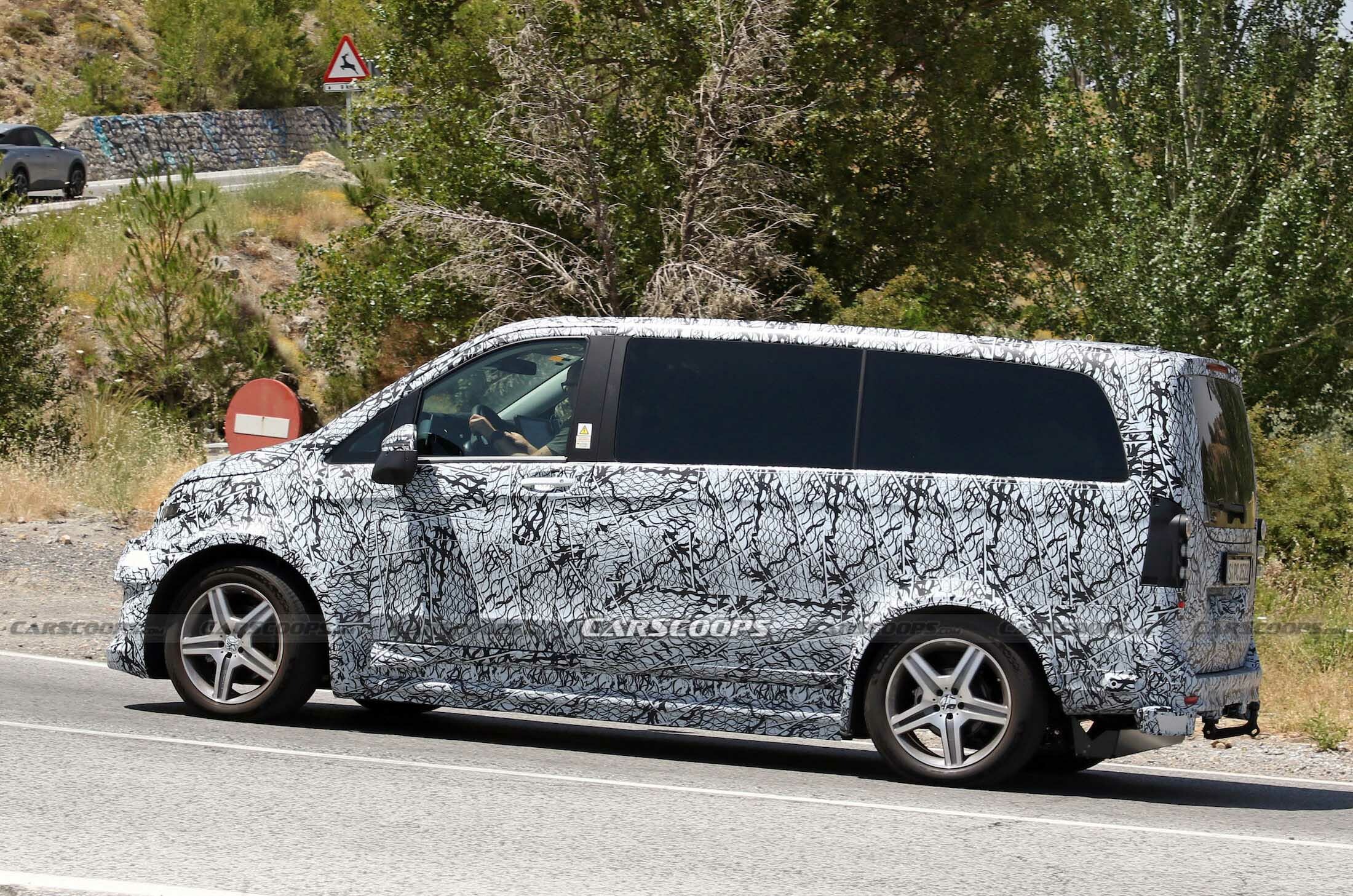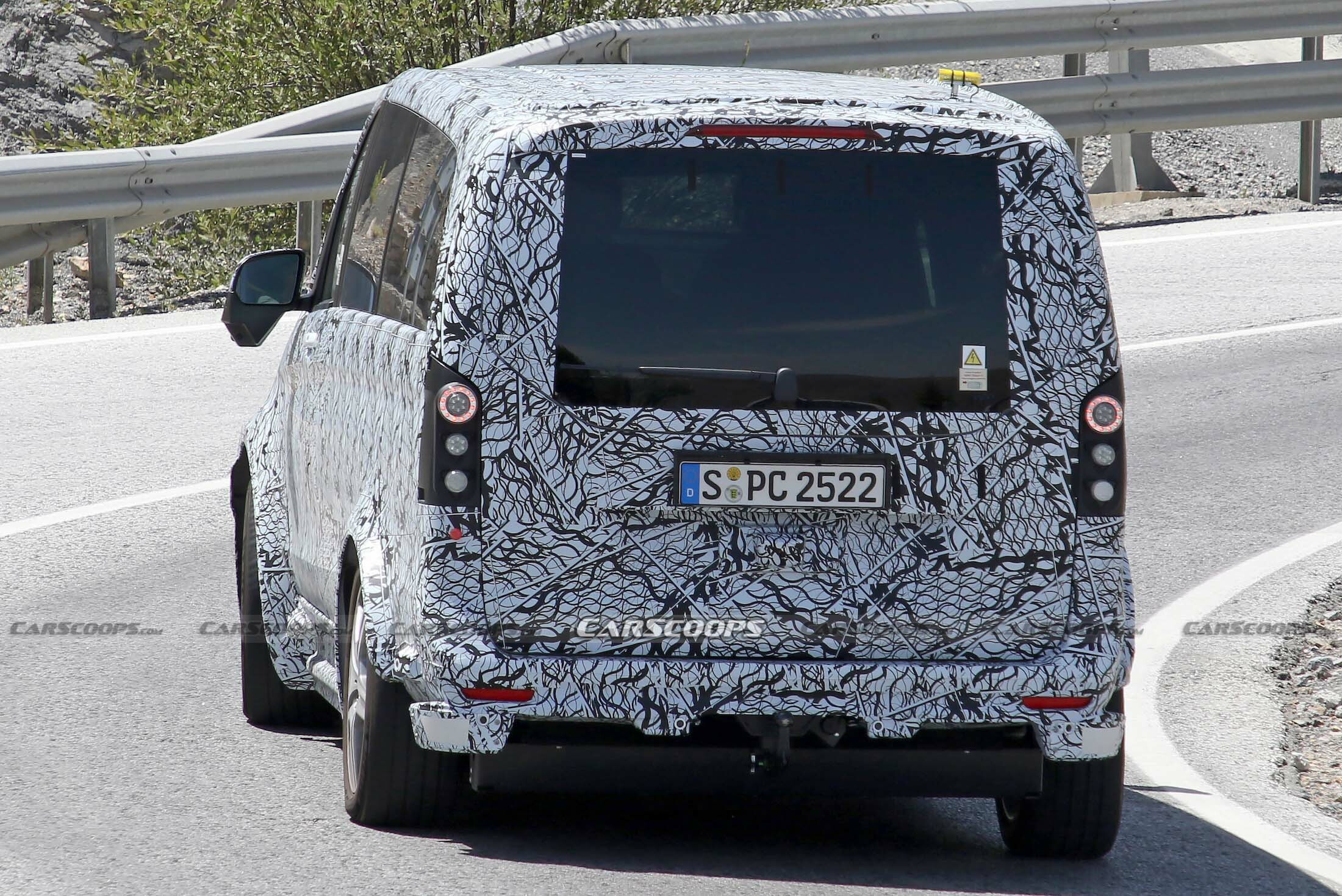- Mercedes is testing its upcoming VAN.EA electric platform with an old V-Class mule.
- The next generation V-Class and Vito will feature sophisticated driver assistance technology including Level 3 and even Level 4 autonomy.
- Mercedes has promised to make the V-Class more luxurious and bring it to the US.
Mercedes might be best known to us for its luxury sedans and SUVs, but that’s only one side of the business. Benz is also big in the commercial vehicle sector, while some models, like the V-Class and its blue-collar Vito brother, straddle both markets. Now a decade old, they’ll soon be replaced using EV hardware being tested in this mule.
Stashed under this test van’s current V-Class minivan body is Mercedes’ next-generation VAN.EA architecture, an advanced electric platform consisting of three distinct modules – front, center and rear – that will enable Mercedes engineers to adapt it to suit different sized vans and offer them with multiple driveline configurations.
Related: Mercedes V-Class Mule Hints At An Electric And Autonomous Future
All vans will get a standardized front module with an electric motor driving the front wheels, but the rear module is available with and without an electric motor, while different center modules adjust the vehicle length and can accommodate different battery capacities.
This scalable architecture will underpin every new Mercedes van starting in 2026, and although it will launch with simple Level 2 cruise control, the automaker claims that by the end of the decade passenger versions will feature Level 3, and commercial vans could even offer Level 4, assitance tech. A close look at the door mirrors on this mule reveals bulky sensor pods which must be part of the semi-autonomous system.
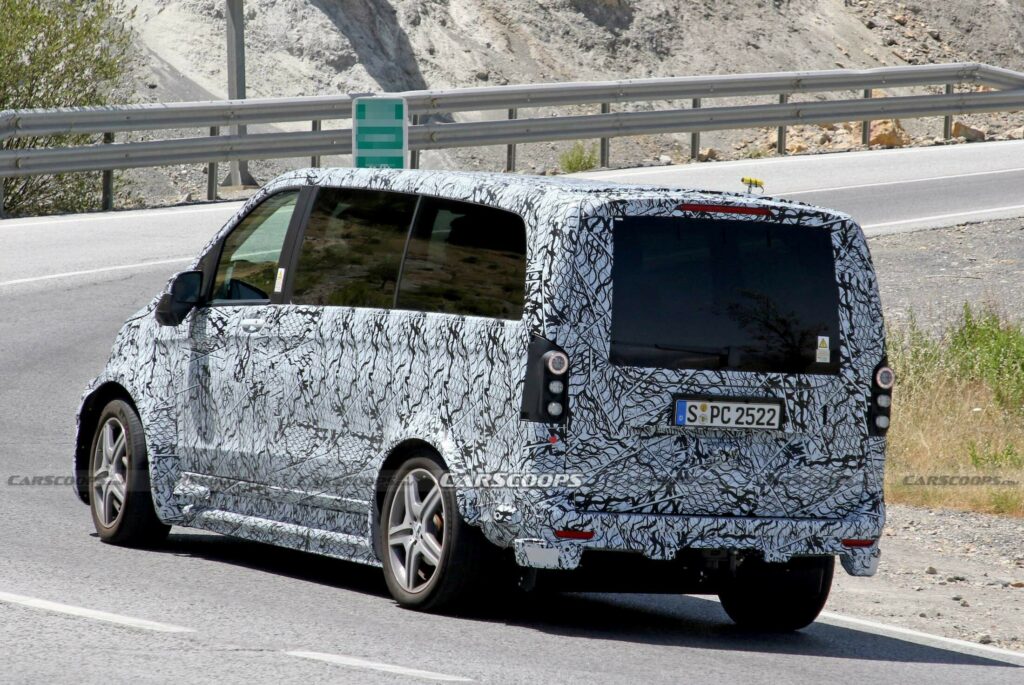
Commercial applications for VAN.EA include everything from regular panel vans to ambulances, camper vans and flatbed trucks, while Mercedes has promised that the passenger versions will get even more luxurious and provide at least 311 miles (500 km) of electric range.
China is a big market for luxury minivans, a sector that is booming and has prompted Lexus to create the LM. But unlike Lexus, which isn’t bringing the LM across the Pacific, Mercedes thinks that there’s potential in North America, too, and has pledged to sell the electric V-Class in the US in the second half of the decade.




